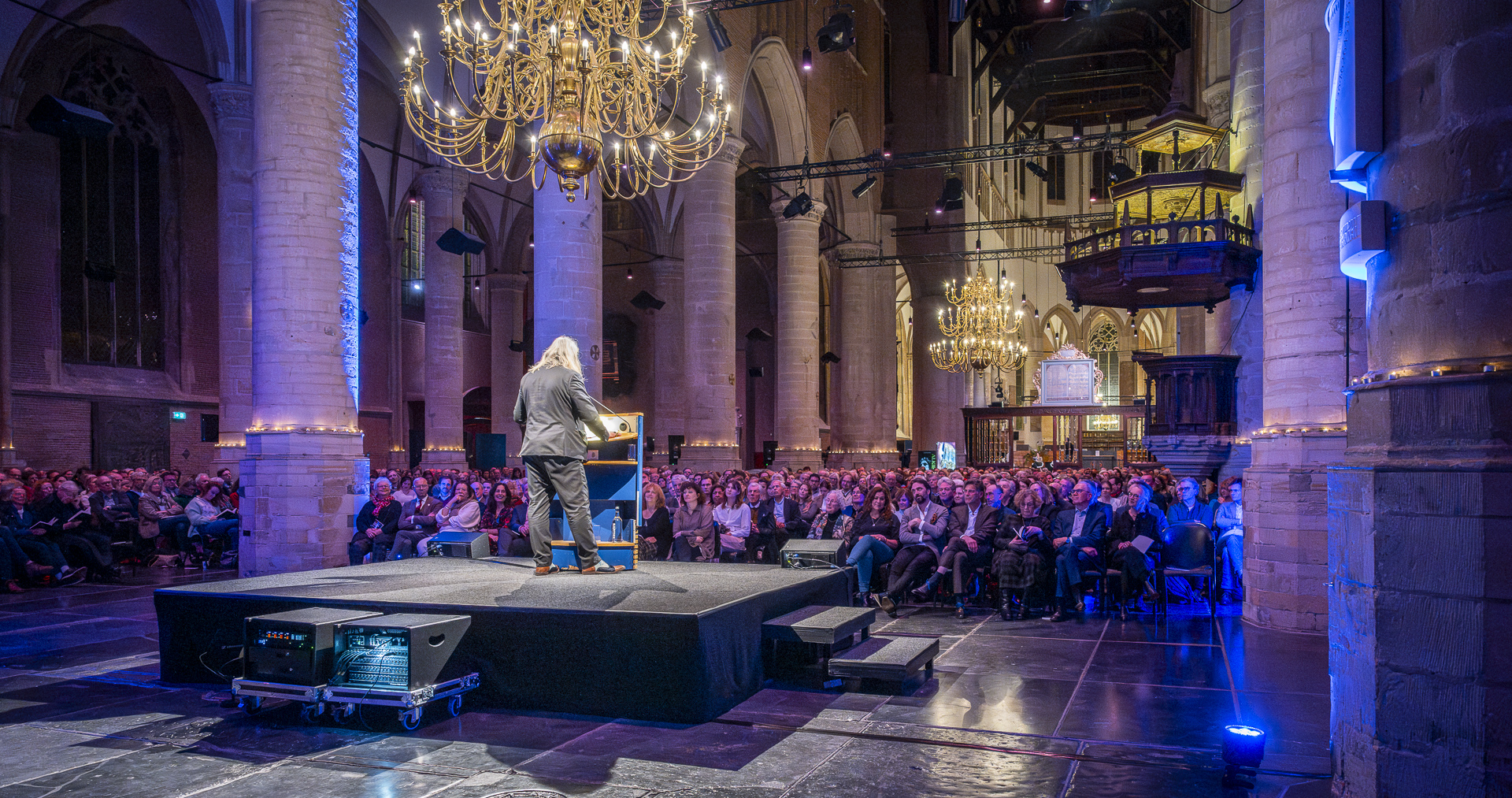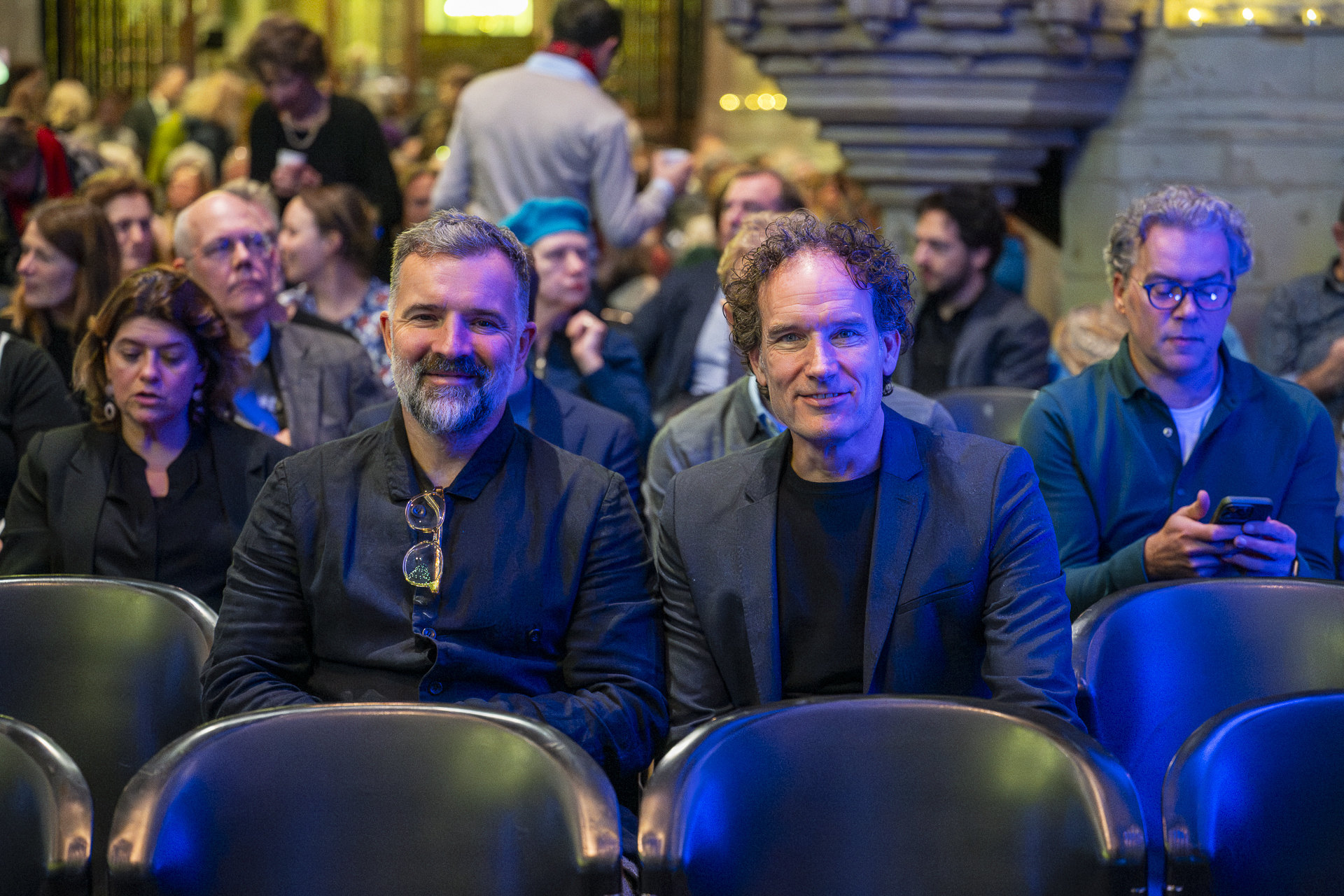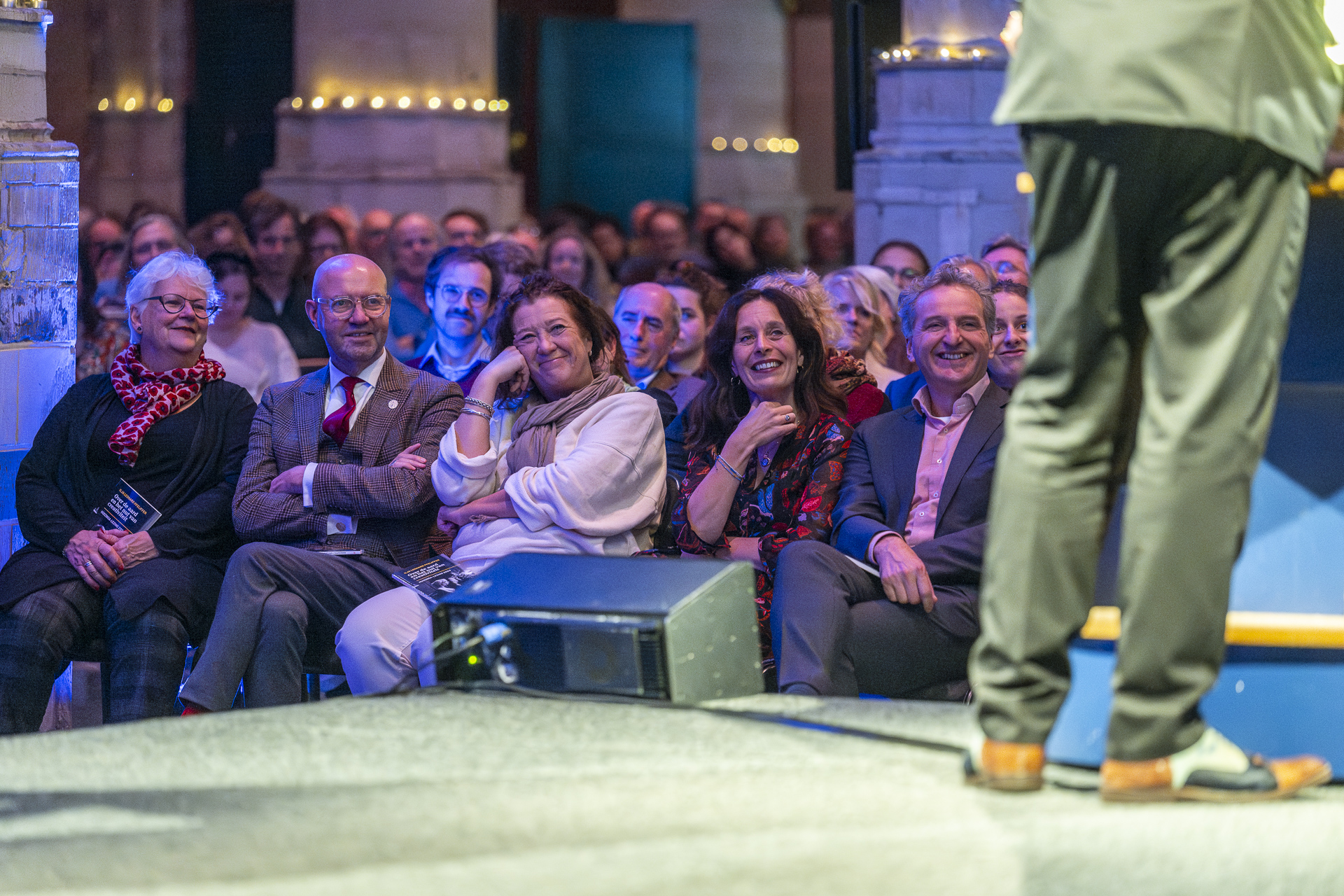
Ilja Leonard Pfeijffer: ‘Only creativity can save the world’
Ilja Leonard Pfeijffer delivered the Huizinga lecture on Friday 8 December in a packed Pieterskerk. The writer seized the opportunity of the 52nd edition to point out the importance of creativity, both for artists and scientists.
The lecture's namesake, historian Johan Huizinga, gained fame with his study of man at play. Pfeijffer promised his audience in the very first minutes of his lecture that he would use this theory to ‘solve the world riddle, preserve the homeland and, while I'm at it, save my dear university.’
Surprise of the game
To this end, he reverted to the four conditions Huizinga attached to play, which he said also apply to the creativity central to his authorship: play or art must be practised in freedom, it must distance itself from the concerns of everyday life, have no immediate importance and take place within clear frameworks. '[Creativity is] the skill of disappearing from the creative process itself and subordinating oneself to the rules of the game.'
As a writer, Pfeijffer can play this game to his heart's content. He can become absorbed in his story until ‘I actually have the impression [that] all I have to do is write down what the characters dictate to me’ and use AI software to generate illustrations that he would never have been able to come up with if he had a predetermined plan.
-

Professor Odile Heynders opened the evening -

-

1400 visitors listened to Pfeijffer's lecture -

After the lecture, Pfeijffer was interviewed by students Frank van den Boom and Zoë Jaspers -

The booklet, on the cover an AI-image made by Pfeijffer -

Pfeijffer's friends Casper Faassen, artist, and Onno Blom, writer -

Pfeijffer signed his books afterwards -

Anton van der Lem, Huizinga specialist, and Sanderien de Jong, secretary to the Huizinga Committee -

-

The Huizinga Committee and Pfeijffer
Bookkeepers of facts
His scientific colleagues are less fortunate in that respect, he argued. 'To return to the world puzzle: I am convinced that this cannot possibly be solved without creativity. Scientists who measure things and make calculations are useful for proof after the fact, but the ground-breaking theory, leading to a scientific revolution, a paradigm shift and a profound new insight, cannot possibly be conceived by bookkeepers of facts.'
Pfeijffer therefore suggested a return to Dutch-language academic education that is strongly focused on specific knowledge. 'The lecture I learnt the most from as a student was not the "Arts, Sciences, Society and Communication" module, because it didn’t exist in my time, but Professor Sicking's privatissimum Greek, in which we spent two full semesters discussing a single page of Metaphysics, book II “small alpha”, by Pseudo-Aristotle, after which it was decided that we had understood nothing of it and that we would have to start from scratch the next semester.' He did not consider the fact that this approach might not be financially attractive as a problem: 'Education and research cost money, just as a cycle path costs money. A university should be loss-making, or it is not a good university.'
Paradigm shift
The traditional student interview after the lecture opened with loud laughter, when it emerged that interviewer Zoë Jaspers, from International Studies, not only follows a broad English-language bachelor's degree so despised by Pfeijffer, but even combines it with the also English-language minor 'Creative Strategies for a Society in Change'. However, this did not get in the way of a good conversation. In response to her question about activist art, Pfeijffer nuanced his earlier statement that a writer should keep a distance from reality. Although he maintained that some distance from current events is necessary to reflect on them, he admitted that it was ‘of course obvious to want to change something with art.’
Student Frank van den Boom (English Research Masters’ Classics and Literary Studies), among others, wanted to know from Pfeijffer how you can achieve what he thinks is a much-needed scientific revolution when you are part of a capitalist system filled with grant applications and student loans. Pfeijffer acknowledged that this does indeed hamper what he believes to be the necessary creativity, but was nevertheless hopeful. 'Recognising that a paradigm shift is needed is already a huge step forward.'
The Huizinga Lecture has been organised annually in the Pieterskerk in Leiden since 1972. The name of the lecture is a tribute to the historian and cultural philosopher Johan Huizinga (1872-1945). The lectures have a cultural-historical or a cultural- or social-critical character. The text edition of the lecture can be ordered from the website of news magazine EW. If you would you like to be notified of future Huizinga lectures you can sign up for our newsletter.
The booklet is availabe at (online) bookstores and via the website of EW.
